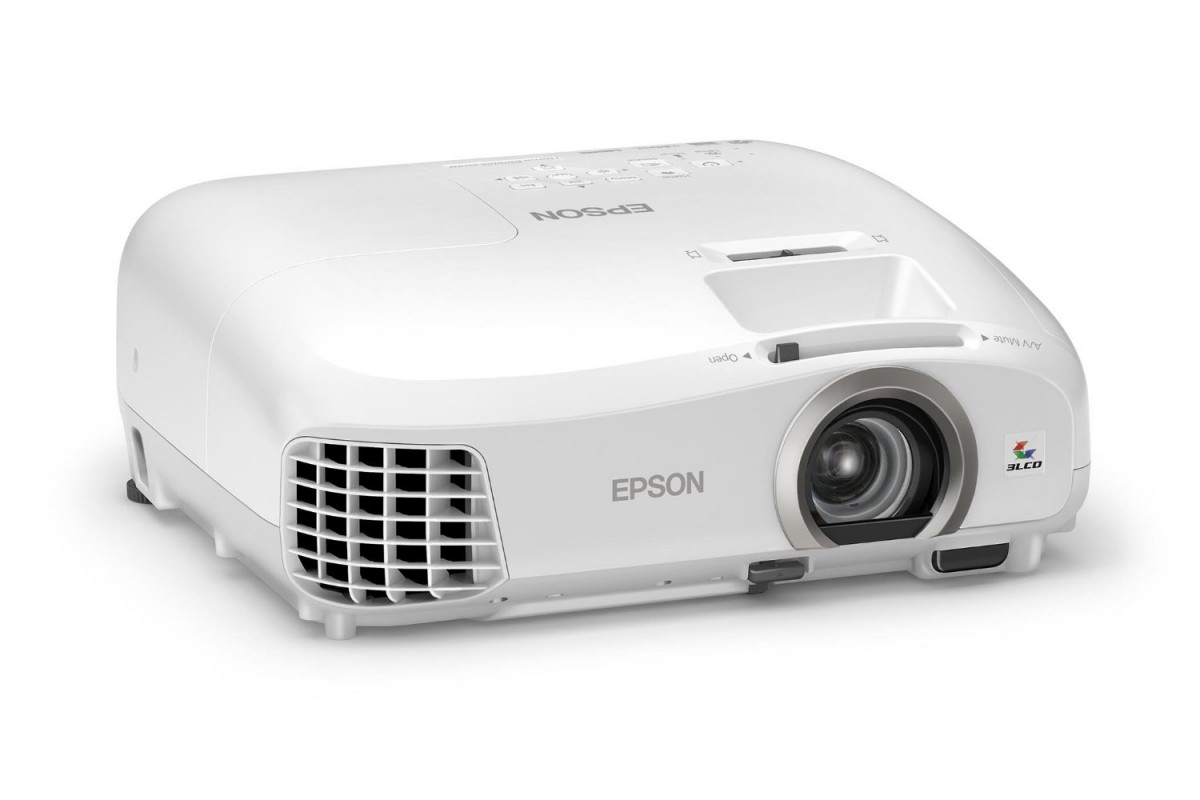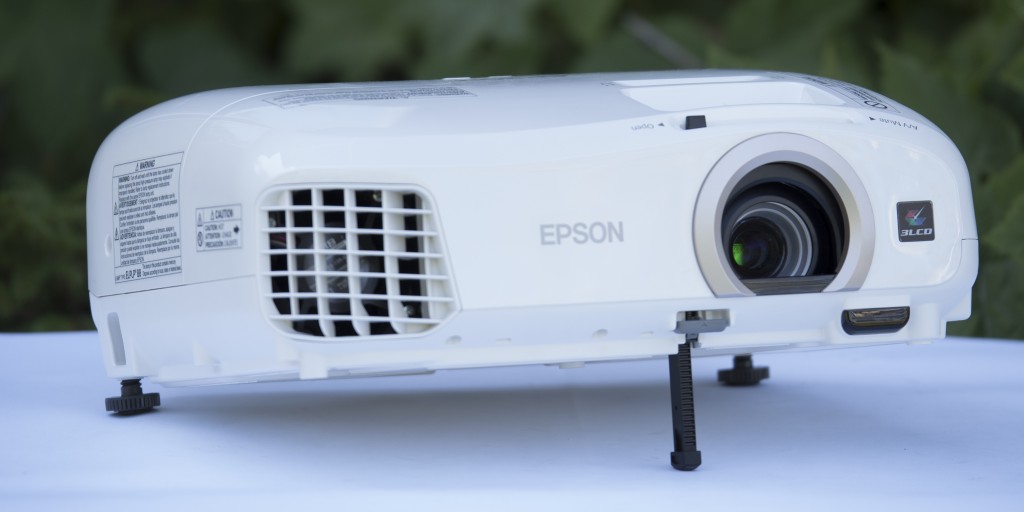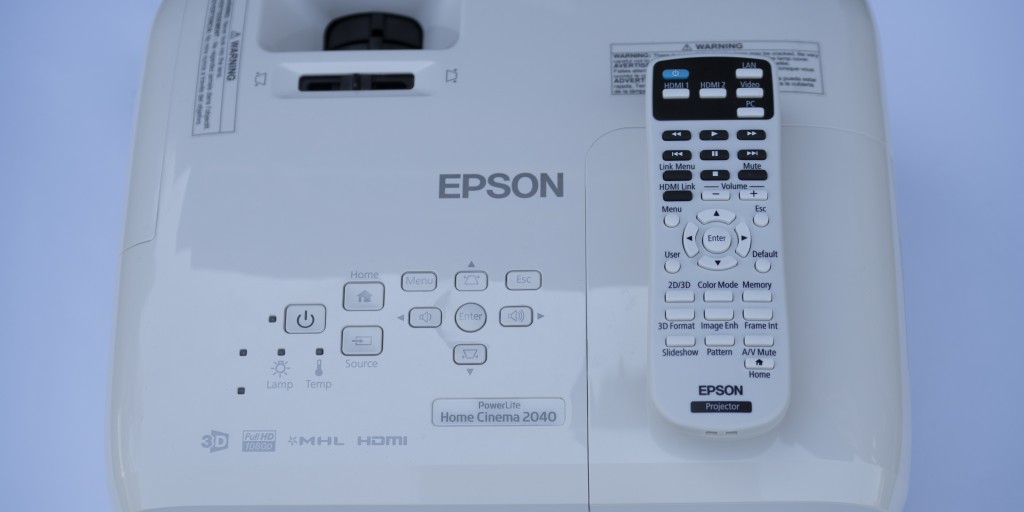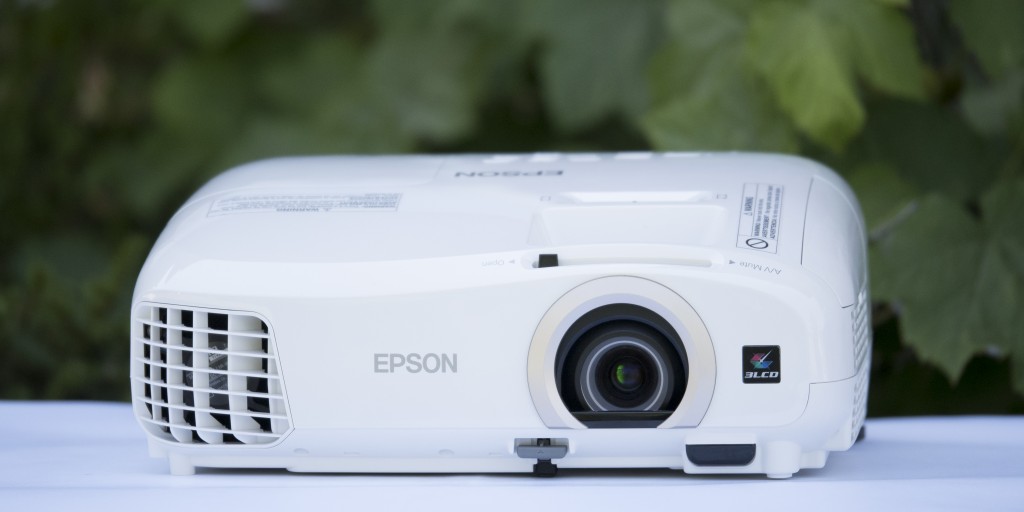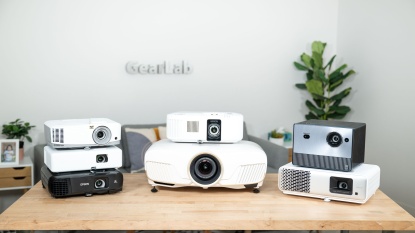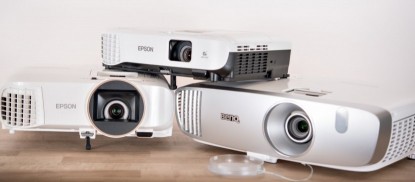The PowerLite Home Cinema 2040 is a top notch movie machine that fell just short of the Editors' Choice Award winner in our testing. While you can get some extra performance from the BenQ HT2050, we don't foresee any buyer's remorse for those that choose to go with the PowerLite. It provides very good image quality and color accuracy in full high definition resolution, and can easily anchor any home theater. Its relatively dim lamp means it looks slightly washed out when used in a well lit room, but still provides passable quality in that situation.
Epson PowerLite Home Cinema 2040 Review
Our Verdict
The PowerLite Home Cinema 2040 is a top notch movie machine that fell just short of the Editors' Choice Award winner in our testing. While you can get some extra performance from the BenQ HT2050, we don't foresee any buyer's remorse for those that choose to go with the PowerLite. It provides very good image quality and color accuracy in full high definition resolution, and can easily anchor any home theater. Its relatively dim lamp means it looks slightly washed out when used in a well lit room, but still provides passable quality in that situation.
Our Analysis and Test Results
Performance Comparison
Image Quality
Epson is the only brand we tested that opts for 3LCD technology over the somewhat more common DLP. In the case of the PowerLite, those LCDs are able to produce incredible, vibrant colors with high levels of contrast. It shared the top score of 8 out of 10 in our image quality testing, putting it well above the low score of 3. It renders just as vivid images and accurate colors as the Editors' Choice award-winning BenQ HT2050 in 90% of scenes. The only place a difference can be seen is in very bright or very dark images. The PowerLite's blacks are just slightly lighter than the BenQ HT2050's, making dark scenes pop a bit more on the BenQ. Sometimes the PowerLite lends a slightly washed out quality to brighter areas in an image, where the BenQ HT2050 is able to retain a bit more definition and depth in the same areas. These are very subtle differences that are only really noticeable in a direct side by side comparison. Only the most discerning of cinephiles would be able to notice this difference in normal movie watching. The 1080p resolution is also able to render sharp text and graphs. Ambient light dulls some colors, similar to the other models that are optimized for home theater use.
Ease of Use
The PowerLite was on par with most of the other models in the densely packed ease of use category. It picked up an average score of 6 in a metric that saw all models scoring a 5, 6, or 7. At 6.7 pounds it is one of the heavier models we tested, and its curvy shape makes it hard to pack efficiently. We wouldn't recommend it to anyone that values portability. The adjustable front leg felt a bit flimsy, but we didn't run into any durability issues in our testing or in scouring online user reviews. The leg adjusts height with a button locking mechanism. This is more convenient than a screw and can be adjusted in very small increments. Both back legs are also adjustable via screws. Epson is the only manufacturer we tested that offers horizontal keystone correction, which is controlled by a slide on top of the projector. The slide is not particularly sensitive, but we've found that horizontal keystone correction is rarely necessary. Espon also offers automatic vertical keystone correction. This is a little-advertised function that is buried in the spec sheet, to the point where we weren't even aware of it when first testing the projector. We discovered it by happenstance while moving projectors around the testing lab, and the reaction must have been similar to when Homo erectus first discovered fire: a lot of grunting and ambiguous exclamations followed by a stunned silence. This feature works really well and eliminates one step in the setup process. Both the focus and zoom knobs are smooth and easy to adjust in small increments. It offers an average zoom of 1.2X, which lends enough flexibility to handle the most common projecting situations. It also has a nice sliding lens cover that automatically turns the bulb off and mutes the internal speaker when it is shut.
The PowerLite's remote control was the least favorite amongst our testers. Its shape isn't particularly ergonomic, and the buttons are small and not where you would expect them to be. It's not a big deal if you'll only be using it to turn the projector on and off, but if you'll be switching color modes or inputs often it can become an annoyance.
Brightness
We measured the PowerLite's brightness at 1513 lumens. This a significantly less than the manufacturer's claim of 2200 lumens, and is the dimmest measurement from our brightness test. It earned the low score of 4 in the brightness metric, which saw scores as high as 9. It seems there isn't much power in that light (sorry, couldn't resist). Despite this relative lack of lumens we found the lamp to be plenty bright for watching movies in a dark room.The dimness became noticeable in ambient light situations, however. When Projecting text and graphs in powerpoint colors looked dull and white areas were very dark. Images projected in a bright room also looked dark, and skin tone tended to look pale.
Fan Noise
The PowerLite's fan isn't too loud, but towards the end of a long movie the lamp can get pretty hot and the fan can get pretty obnoxious. You don't want a loud fan ruining the kiss at the end of an epic rom-com, so we gave the PowerLite a 4 out of 10 in this metric. There were worse models for sure, and the PowerLite's fan noise won't completely taint your movie watching experience, but we think most people will at least notice the fan when they're watching a movie.
Value
The PowerLite carries a list price of $800. This is the same as the Editors' Choice award-winning BenQ HT2050. Both of these models are great values for people looking for high-end movie performance that won't break the bank. The BenQ is just a slightly better value because it offers a small bump up in image and a slightly larger bump up in fan noise performance. However, at the time of this writing the PowerLite is selling from multiple online retailers for close to $100 below the list price. At this price the PowerLite is a great value for those looking for a high-end model and don't mind making small sacrifices in image quality and fan noise.
Conclusion
The PowerLite offers top-notch image quality at a reasonable price. You can get a little bit more performance out of the Editors' Choice award-winning BenQ HT2050, but if that isn't available, or you find the PowerLite on sale, it won't disappoint.


